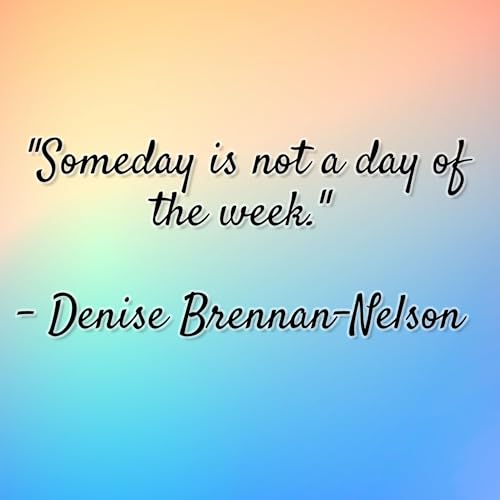Welcome to the Daily Quote – I'm Andrew McGivern.
This podcast is brought to you by the Great News podcast. Tired of all the doom and gloom news from mainstream media? You get none of that there. Instead you'll find inspiring stories and developments that are making the world a better place.
Find Great News in you favourite podcast app!
Today's quote comes from Booker T. Washington, who was born into slavery, freed at age nine, and went on to become an educator, author, and one of the most influential African American leaders of his time.
He once said:
"If you want to lift yourself up, lift up someone else."
This seems backwards at first. If I want to rise, shouldn't I focus on myself? On my own growth? My own advancement?
Washington is saying no. The fastest way to lift yourself up is to lift someone else.
Here's why this works: when you help someone else succeed, you develop the exact skills and mindset you need for your own success.
Teaching someone makes you better at what you teach. Leading someone makes you a better leader. Encouraging someone strengthens your own resolve.
But there's something deeper happening too. When you focus entirely on yourself, on your own elevation, you become small. Isolated. Limited by your own perspective.
When you focus on lifting others, you become part of something larger. You build relationships. You create goodwill. You develop a reputation as someone who helps rather than just takes.
And here's what Washington knew from experience: people who lift others get lifted in return. Not always directly. Not always immediately. But consistently.
The person you help today might open a door for you tomorrow. Or they might tell someone who does. Or they might teach someone who eventually helps you.
You create an upward current that lifts everyone, including you.
Washington lived this. Born into slavery with nothing, he lifted up thousands of students through the Tuskegee Institute. And in lifting them, he lifted himself to become one of the most respected educators in America.
He didn't achieve that by only focusing on his own advancement. He achieved it by dedicating himself to lifting others.
So here's the question: Who could you lift up today? Who could you help, teach, encourage, or support?
Because if you want to lift yourself up, the fastest path is lifting someone else.
Start lifting. And watch what happens.
That's it for today. I'm Andrew McGivern – I'll see you in the next one with another Daily Quote.
 4 m
4 m 4 m
4 m 4 m
4 m 4 m
4 m Feb 28 20264 m
Feb 28 20264 m 4 m
4 m 4 m
4 m 4 m
4 m
